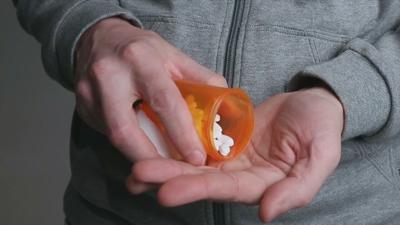
(WSIL) -- August 31st marks international overdose awareness day, so News 3 reached out to local health experts on prevention and recovery efforts.
Last year, western Kentucky lost 34 residents to a drug overdose. While more than 550 experienced an overdose, went to the emergency room or stayed at the hospital, and survived.
Kaitlyn Krolikowski, who is the Director of Administrative Services for the , says officials are worried about counterfeit pills.
"People don't realize someone pressed that pill together to make it look like Xanax or Adderall, and it's actually filled with Fentanyl."Â
There's an increased risk of overdose for certain people, which includes:
- Those who have overdosed within the past year
- People who use Benzos/alcohol/stimulants/opioids together
- Someone who uses Fentanyl
- Or a former drug user whose tolerance has decreased from a period of abstinence
However, Krolikowski says overdoses are preventable. One way to do this is through the Purchase Health Department. In multiple counties, it offers strips that test pills for Fentanyl.Â
Kentucky also has the Good Samaritan Law, which protects a person from prosecution when they report a drug overdose, and there's Narcan.
"Narcan saves lives; Dead people don't recover," she adds. "Narcan is a life saving drug. The only thing that it does is reverse an opioid overdose."Â
Narcan is available at the McCracken County Library and those who leave the McCracken County jail are also given resources on where to find Narcan.Â
Turning Point Recover Center will also hold a remembrance event on August 31st at Noble Park in Paducah. Starting at 5 p.m. they have speakers and hand out free Narcan and Fentanyl test strips.
However, addiction doesn't know state lines. There's also help for those in Southern Illinois through .
Wendy Armstrong, the coordinator for the substance abuse program says, it's available in the state's southern 7 counties.
"Our outpatient program consists of individual sessions with the client," she elaborates. "Then we also do group therapy."
She explains some of the obstacles to becoming sober and staying sober.
"A lot of it is they live in this area; they grew up in this area; they've used in this area," Armstrong says. "Their triggers are all around them."Â
That's why having a support system like family makes a difference.
"Just someone to be there for them and listen to them talk," she adds. "Or whatever they need to help them."Â














